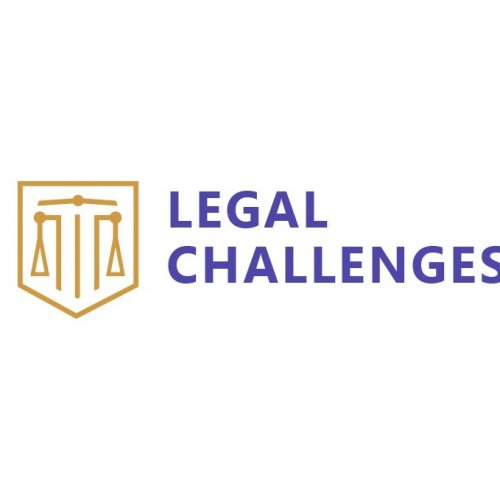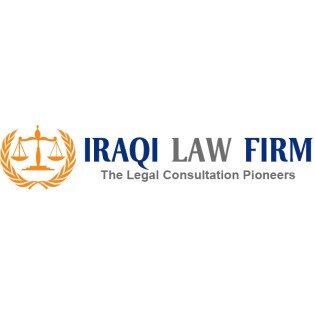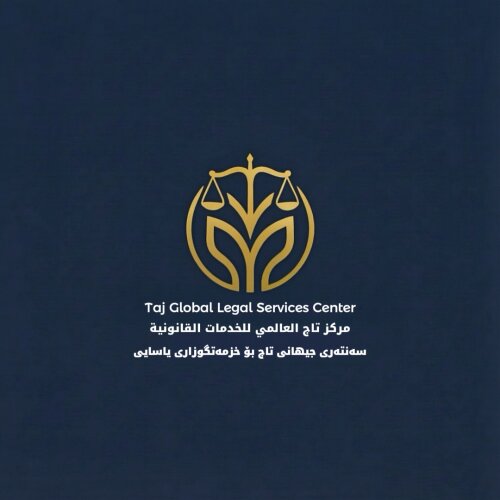Best Restructuring & Insolvency Lawyers in Iraq
Share your needs with us, get contacted by law firms.
Free. Takes 2 min.
Or refine your search by selecting a city:
List of the best lawyers in Iraq
About Restructuring & Insolvency Law in Iraq
Restructuring and insolvency law in Iraq deals with the processes and legal frameworks surrounding financially distressed companies and individuals who are unable to meet their financial obligations. This area of law covers formal procedures for restructuring debt, bankruptcy filings, liquidation of assets, and provides protection for both creditors and debtors. Iraqi insolvency and restructuring regulations aim to stabilize businesses, protect jobs, ensure fair treatment of creditors, and preserve economic activity whenever possible. Historically, the regulatory framework has evolved to align with international practices, but there are still significant local nuances and requirements in the Iraqi context.
Why You May Need a Lawyer
Legal advice is crucial for anyone involved in restructuring or insolvency situations in Iraq. Common scenarios where individuals and businesses may require legal assistance include:
- Negotiating with creditors to avoid bankruptcy
- Filing for insolvency or bankruptcy protection
- Asset preservation and creditor claims management
- Advising on debt restructuring plans
- Representing parties in court proceedings or settlements
- Ensuring compliance with local laws and official procedures
- Cross-border insolvency issues for international companies
- Advising shareholders and directors about their rights and liabilities
- Guiding liquidation and asset distribution
- Drafting and reviewing legal documents for restructuring agreements
Lawyers provide guidance to avoid common legal pitfalls and help ensure that decisions taken during restructuring or insolvency proceedings meet local statutory and regulatory requirements.
Local Laws Overview
Iraq's restructuring and insolvency framework is governed mainly by the Iraqi Commercial Code, the Bankruptcy Law of 2010 (Law No. 3 of 2010), and related regulations. The following are key aspects of local law relevant to those facing financial distress:
- Iraqi law provides mechanisms for voluntary and involuntary bankruptcy applications
- Only courts are permitted to declare an entity bankrupt or to approve restructuring plans
- Court-appointed trustees or liquidators oversee asset distribution and creditor payments
- The law provides a hierarchy for creditor claims, prioritizing secured debts and employee wages
- Protection may be granted to debtors from creditor enforcement while proceedings are ongoing
- Penalties may exist for fraudulent actions prior to or during insolvency proceedings
- Certain contracts may be terminated, renegotiated, or suspended under insolvency administration
- Foreign companies operating in Iraq must comply with both local insolvency requirements and any relevant home-country laws
- There are specific procedures for asset valuation and distribution
- Directors and company officers have duties to act in the best interest of creditors once insolvency is likely
It is important to understand that legislative developments and practical enforcement may vary by jurisdiction within Iraq and by the economic sector involved.
Frequently Asked Questions
What is insolvency in Iraq?
Insolvency refers to the condition where an individual or company is unable to pay debts as they become due. In Iraq, it is addressed through both out-of-court workout options and formal bankruptcy proceedings.
What is the difference between restructuring and liquidation?
Restructuring involves reorganizing a company’s debts and operations to restore financial health and avoid bankruptcy. Liquidation means ending all business operations and using assets to pay creditors under the court’s supervision.
Who can file for bankruptcy in Iraq?
Both individuals and companies can file for bankruptcy in Iraq if they meet the legal definition of insolvency under Iraqi law.
What happens to employees during bankruptcy or restructuring?
The law prioritizes employee wages in the distribution of assets. Under restructuring, jobs may be preserved, while liquidation usually means all positions are terminated.
How are creditors paid in insolvency proceedings?
Creditors are paid according to a legal hierarchy, starting with secured creditors, then employee wages, and afterwards unsecured creditors. Any remaining assets are distributed among shareholders.
Can foreign companies use Iraqi insolvency procedures?
Foreign companies operating in Iraq can use local insolvency procedures but must also respect any additional obligations under their home jurisdiction’s laws.
Are directors personally liable for company debts?
Generally, directors are not personally liable unless they have acted fraudulently or negligently. However, they are required to act in the best interest of creditors once insolvency is likely.
What is the role of the court in restructuring and insolvency?
Only Iraqi courts can declare insolvency, oversee asset distribution, and approve restructuring plans. The court also appoints trustees or liquidators as needed.
How long does insolvency or bankruptcy proceedings usually take?
The process duration varies depending on the complexity of the case, size of the business, and assets involved. It can range from several months to a few years.
What documents are required to initiate insolvency proceedings?
Applicants must provide evidence of insolvency, a list of assets and liabilities, creditor information, contracts, and company records, among other documents dictated by local regulations.
Additional Resources
If you need more information or assistance, consider contacting the following organizations and authorities in Iraq:
- Ministry of Justice - for information about local courts and legal proceedings
- Iraqi Court of First Instance - for initiating bankruptcy or restructuring cases
- Iraqi Bar Association - for a list of qualified bankruptcy and restructuring lawyers
- Chambers of Commerce - for support and referrals to professional advisors
- International organizations with local branches, such as the International Finance Corporation, for guidance on best practices
Next Steps
If you believe you need legal assistance with restructuring or insolvency in Iraq, take these steps:
- Collect all relevant financial documents and contracts
- Assess your financial situation and objectives
- Contact a lawyer who specializes in restructuring and insolvency law
- Schedule an initial consultation to discuss your options and rights
- Follow your lawyer’s advice on how to proceed with negotiations or formal proceedings
- Cooperate fully with all official bodies and provide accurate information
Taking prompt legal advice can help you better understand your rights and responsibilities, protect your interests, and achieve the best possible outcome whether through restructuring, settlement, or formal insolvency proceedings.
Lawzana helps you find the best lawyers and law firms in Iraq through a curated and pre-screened list of qualified legal professionals. Our platform offers rankings and detailed profiles of attorneys and law firms, allowing you to compare based on practice areas, including Restructuring & Insolvency, experience, and client feedback.
Each profile includes a description of the firm's areas of practice, client reviews, team members and partners, year of establishment, spoken languages, office locations, contact information, social media presence, and any published articles or resources. Most firms on our platform speak English and are experienced in both local and international legal matters.
Get a quote from top-rated law firms in Iraq — quickly, securely, and without unnecessary hassle.
Disclaimer:
The information provided on this page is for general informational purposes only and does not constitute legal advice. While we strive to ensure the accuracy and relevance of the content, legal information may change over time, and interpretations of the law can vary. You should always consult with a qualified legal professional for advice specific to your situation.
We disclaim all liability for actions taken or not taken based on the content of this page. If you believe any information is incorrect or outdated, please contact us, and we will review and update it where appropriate.
Browse restructuring & insolvency law firms by city in Iraq
Refine your search by selecting a city.

















